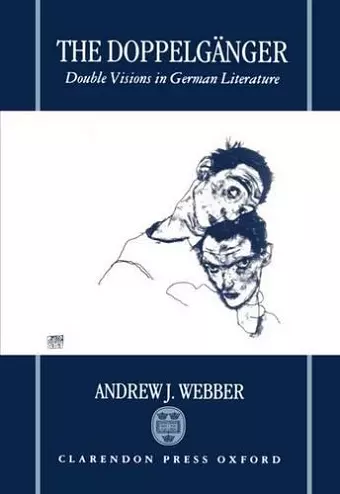The Doppelgänger
Double Visions in German Literature
Format:Hardback
Publisher:Oxford University Press
Published:27th Jun '96
Currently unavailable, and unfortunately no date known when it will be back

Ever since its literary coinage in Jean Paul's novel, Siebenkäs (1796), the concept of Doppelgänger has had significant influence upon representations of the self in German literature. This study charts the development of the double from its origins in the Romantic period, through its more marginal - but nonetheless significant - manifestations in the post-Romantic culture, to its revival at the fin-de-siècle and transfer to the silent screen. The book features an introduction to the practice and theory underlying the use of the Doppelgänger, with particular reference to psychoanalysis, followed by chapters on Jean Paul, Hoffmann, Kleist, poetic realism (Droste-Hülshoff, Keller, Storm) and modernism (Kafka, Rilke, Hoffmannsthal, Schnitzler, Meyrink, Werfal). This study shows that the often underestimated figure of the double may provide a key to the epistomological, aesthetic and psychosexual structures of the texts it visits and revisits, with a particular focus on its effects in the fields of vision and language.
It is simply impossible to provide here an adequate description of a study that deals with a fairly large number of text and, more to the point, does so often from wide-ranging theoretical viewpoints eclectically applied. * James M McGlathery/Michigan Germanic Studies VolXXII No2 *
It is particularly difficult to do justice here to readings that are so rich in detail and complex of argument. * Matthew Bell, MLR, vol 94, no 1, 1999 *
ISBN: 9780198159049
Dimensions: 224mm x 144mm x 27mm
Weight: 643g
390 pages